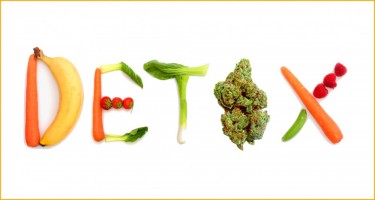
As cannabis use becomes increasingly mainstream due to legal reforms and shifting cultural attitudes, more users are exploring how to manage their consumption. Whether for a job, a tolerance break, or personal wellness goals, marijuana detox has become a hot topic. But what exactly is marijuana detox, and how do you do it?
In this detailed guide, we’ll explore what marijuana detox is, why people do it, how long it takes, and step-by-step methods to detox effectively and safely.
Marijuana detox refers to the process of eliminating tetrahydrocannabinol (THC)—the psychoactive compound in cannabis—and its metabolites from your body. This process begins once cannabis use stops and your system starts to metabolize and excrete any remaining traces.
THC is fat-soluble, meaning it binds to fat cells in your body. Because of this, it stays in your system longer than many other substances. For frequent or long-term users, this means detox can take days to weeks, depending on several factors including body fat, metabolism, and the amount consumed.
Why Do People Detox From Marijuana?
There are several reasons someone might choose to detox from cannabis, including:
Passing a drug test: Often required for employment, sports, or legal reasons. For example, detoxing weed from you system before a work screening drug test!
Lowering tolerance: Taking a tolerance break (or “T-break”) can help reset your body’s response to THC.
Mental clarity: Some users detox to improve focus, memory, or emotional regulation. Detoxing with fresh fruit and smoothies in popular in some countries!
Health or fitness goals: Cutting back on smoking, especially if it’s impacting lung health or energy.
Dependency concerns: Recognizing and reversing a developing psychological reliance on cannabis.
How Long Does THC Stay in the Body?
There’s no one-size-fits-all answer, but here’s a rough breakdown based on usage frequency:
Occasional users (1–2 times per month): THC can be cleared in 3–10 days
Moderate users (3–4 times per week): Up to 2–3 weeks
Daily users: May take 30+ days
Heavy, long-term users: Up to 60–90 days
THC is most commonly detected through urine tests, but it can also be found in blood, hair, and saliva, each with varying detection windows.
Marijuana is not physically addictive in the same way as substances like opioids or alcohol, but long-term users may experience mild withdrawal symptoms when they stop. These include:
Irritability or mood swings
Sleep disturbances (insomnia or vivid dreams)
Decreased appetite
Headaches
Cravings
Anxiety or restlessness
These symptoms typically begin within the first 1–3 days, peak around day 3–7, and taper off after 10–14 days.
Step-by-Step Marijuana Detox Guide
1. Stop All THC Consumption
This is the obvious first step. Eliminate all sources of THC, including flower, edibles, vapes, tinctures, and oils. Even secondhand smoke exposure should be avoided if you’re aiming for a clean drug test.
2. Hydrate—But Don’t Overdo It
Water is essential for detox. It supports the liver and kidneys in flushing out toxins, including THC metabolites.
Drink 8–12 cups of water per day, or more if you’re active.
Avoid extreme overhydration in an attempt to "flush" THC faster—it can be dangerous.
Some people also add lemon juice, cranberry juice, or herbal teas to support kidney and liver function.
3. Exercise Regularly
THC is stored in fat cells. Aerobic exercise helps burn fat, potentially speeding up the release of THC metabolites.
Cardio workouts like running, swimming, or cycling are particularly effective.
Weight training can help improve metabolism.
Saunas and sweating (though not proven to remove THC) may support the body’s natural detox process.
Note: Some recommend pausing intense exercise a few days before a drug test, as metabolized THC can temporarily spike in the bloodstream during fat burn.
4. Eat a Clean, Detox-Supportive Diet
What you eat can help or hinder your detox. Focus on:
High-fiber foods: Vegetables, fruits, legumes, and whole grains aid digestion and toxin elimination.
Lean proteins: Fish, chicken, tofu, and eggs help rebuild the body and maintain energy.
Healthy fats: Avocados, nuts, and olive oil support hormone balance and brain function.
Antioxidant-rich foods: Berries, leafy greens, and green tea can help the body combat oxidative stress.
Avoid processed foods, sugar, caffeine, and alcohol, as they burden your detox organs (especially the liver).
5. Get Plenty of Sleep
Sleep is when your body repairs and resets. Poor sleep can delay detox and worsen withdrawal symptoms.
Aim for 7–9 hours of quality sleep per night.
Try melatonin or magnesium supplements (if needed) to regulate sleep cycles naturally.
Create a wind-down routine and limit screens before bedtime.
6. Support Mental Health
Quitting cannabis—especially if it was used to manage stress or emotions—can be mentally challenging.
Practice mindfulness, meditation, or deep breathing to stay grounded.
Stay connected with supportive friends or a therapist.
Journaling or mood tracking can help you understand emotional patterns during detox.
7. Consider Detox Aids (Cautiously)
There are over-the-counter detox kits and drinks that claim to rapidly remove THC from the system. Use caution:
Some products only mask THC in urine for a short period rather than truly removing it.
Read reviews and research ingredients carefully.
Natural detox is generally more reliable for long-term results, though some people find detox drinks helpful before drug tests.
8. Plan for the Long Term
Detoxing from marijuana isn’t just about short-term cleansing. Use the time to reflect on your goals.
Are you detoxing just for a test, or do you want to reevaluate your relationship with cannabis?
Consider implementing moderation strategies going forward (e.g., microdosing, limited days of use).
Make healthy lifestyle habits stick so you’re less likely to fall into dependency again.
Final Thoughts: Detox as a Reset, Not a Punishment
A cannabis detox doesn’t have to be painful or punishing. In fact, it can be an empowering reset that improves mental clarity, physical health, and emotional balance. Whether you’re stepping away from cannabis for a short time or making a permanent change, the key is approaching detox with intention, knowledge, and self-compassion.
With the right strategy and mindset, detoxing from marijuana can become an opportunity—not just to clear your system, but to realign your habits, mindset, and health goals for the better.






